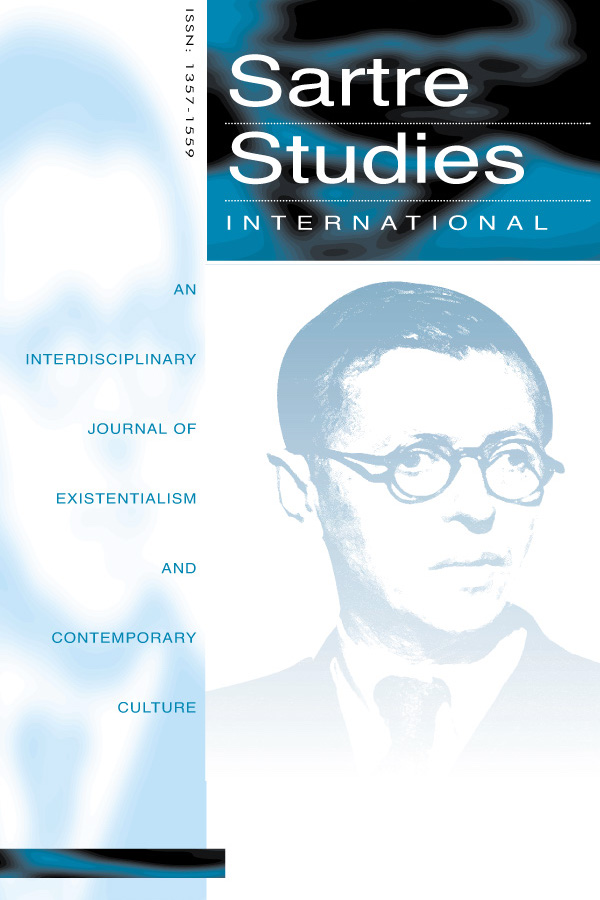
Sartre Studies International
An Interdisciplinary Journal of Existentialism and Contemporary Culture
ISSN: 1357-1559 (print) • ISSN: 1558-5476 (online) • 2 issues per year
Latest Issue
Volume 31 Issue 1
Editorial
It is not the first time that this editorial page has drawn attention to the capacity of Sartre studies to fascinate and engage successive generations of scholars. In this issue they seek: to understand Sartre's intellectual genetics as an emerging scholar, to analyse how his thinking was formed and influenced by Descartes, and to evaluate how he was perceived as a public intellectual, and how he perceived himself. And also to dialogue on how Sartre's thought can provide a potentially positive lens through which to see a way through and beyond the current crisis in the Middle East.
What Sartre Read in His Formative Years in the 1920s
Some thirty years ago, the metanarratives of Sartre's thinking entered their fourth stage, the genetical stage. An important subject of genetical study has become the period prior to the publication of
Freedom and Truth
Jean-Paul Sartre as a Reader of Descartes’ Meditations
I argue that Sartre's conception of freedom is best understood when read in light of the Cartesian
Positioning Sartre for Success
Patrick Baert and the Sociology of the Existentialist Moment
Sartre remains an exemplary case for the sociology of intellectuals because of the unique way that he combined a prominent role in public life with achievements as a philosopher, novelist and playwright. Sartre's success has been examined by Patrick Baert through the lens of his theory of positioning, according to which specific actions and events serve to give a writer the edge in unfolding social games of recognition. This article argues that Baert's scepticism about Sartre's motives spills over into unwarranted cynicism and that this is made possible by methodological ambiguity surrounding the role of intentions in positioning theory. Baert's narrow periodisation of Sartre's success, and his insinuation that in the immediate post-occupation period Sartre betrayed his earlier philosophical ideas in pursuit of public attention are both rejected. At the same time the discussion finds that, detached from Baert's negative interpretation of Sartre, the idea of positioning may have potential for further development.
Right Then, Right Now
Ronald Aronson and Jonathan Judaken in Conversation about Sartre, Anti-Semitism, and Israel–Palestine
This conversation between Ronald Aronson and Jonathan Judaken explores Sartre's evolving views on anti-Semitism, Israel, racism, and the Palestinian struggle. Sartre first became a significant cultural-political force as a critic of anti-Semitism and as a supporter of the national liberation struggle of Israeli Jews. Then, faced with the Israeli-Arab and then the Israeli-Palestinian conflict, he refused to abandon his support for Israeli Jews even while embracing the validity of the Palestinian cause, including at times the use of ‘terrorism as a weapon of the weak’. His nuanced, situated, and insightful views prove valuable to revisit in light of October 7 and the ensuing war.
Review Essay
Barbara Klaw, Sylvie Le Bon de Beauvoir, and Margaret A. Simons with Marybeth Timmermann (eds),
Book Reviews
Robert Bernasconi,
Kathryn Sophia Belle,
Timothy D. Mooney,
Joseph C. Berendzen,